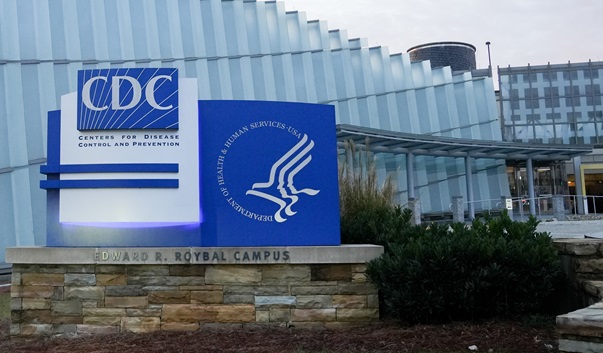SCOTUS ruling on mifepristone could have lasting impact on FDA regulation: Experts
Written by ABC Audio ALL RIGHTS RESERVED on June 13, 2024

(NEW YORK) — While experts and advocacy groups applauded the U.S. Supreme Court’s decision Thursday to not restrict nationwide access to the abortion pill mifepristone, they warn access to medication abortion remains at risk — as does the very foundation of the Food and Drug Administration’s regulation of all medications.
The court unanimously struck down a lawsuit seeking to restrict nationwide access to mifepristone, one of the two pills used in an abortion medication regimen. The court ruled that a group of doctors have no grounds to bring the lawsuit that sought to roll back the FDA’s approval of mifepristone.
While it is only recommended for up to 11 weeks of pregnancy, the abortion pill regimen is the least expensive form of abortion care and has become the most common form of abortion care in the U.S.
Medication abortion accounted for 63% of U.S. abortions in 2023, according to a study from the Guttmacher Institute in March, and its use is growing. Medication abortions accounted for just 53% of all abortions in the U.S. in 2020, according to Guttmacher, a research and policy group that advocates for reproductive health.
Women in states where abortion care has ceased or is restricted can still access the pills by mail under Thursday’s ruling — the biggest impact from the Supreme Court’s decision.
“The idea of limiting access to mifepristone will just further exacerbate disparities that we’re already seeing in terms of reproductive health care,” said Dr. Reshma Ramachandran, a family physician, health services researcher and assistant professor at Yale University School of Medicine.
Women who take the abortion pill can also go back to work or their daily lives quicker and patients see less days of bleeding and the likelihood of profound blood loss, Ramachandran said. The need to be seen by a physician is also reduced with the abortion pill regimen, compared to surgical abortions, she added.
At least 17 states have ceased nearly all abortion care since the U.S. Supreme Court overturned Roe v. Wade nearly two years ago.
Impact on abortion care
Ramachandran called the Supreme Court decision “a relief.”
“While it is great that they dismissed it, the rationale for it is not as comforting because that just introduces the possibility that other groups where standing can be established could raise the same challenge and could work to limit access to mifepristone,” said Ramachandran.
“I’m very cognizant that this still allows for additional challenges to come forward before the courts,” Ramachandran said.
The American Civil Liberties Union also warned that the ruling was not the end of challenges to the abortion pill.
“Although the Court refused to allow these particular people to bring this case, anti-abortion politicians are waiting in the wings to attempt to continue pushing this case before an extremist judge in Texas in an effort to deny people access to medication abortion care,” Jennifer Dalven, director of the ACLU Reproductive Freedom Project, said in a statement.
The Guttmacher Institute also warned that mifepristone plays a key role in ensuring that many people safely self-manage their abortions, saying people need to remain “vigilant” with the anti-abortion movement continuing to try and risk care nationwide.
“We are relieved by this outcome, but we are not celebrating. From the start, this case was rooted in bad faith and lacking any basis in facts or science. This case never should have reached our nation’s top court in the first place and the Supreme Court made the only reasonable decision by leaving access to medication abortion using mifepristone unchanged,” Destiny Lopez, the acting co-CEO of the Guttmacher Institute, said in a statement.
The Supreme Court has not yet issued a decision on another case on its docket this term that could have a wider impact on lifesaving emergency abortion care across the country, including states that ban the procedure. The other case — Moyle v. U.S. — centers on Idaho’s total abortion ban, which prohibits the procedure at all stages of pregnancy, with exceptions to save the life of a pregnant woman or in cases of rape or incest.
A Biden administration lawsuit challenging the ban argues that it violates the Emergency Medical Treatment and Labor Act — a federal law that requires emergency room physicians at hospitals that receive Medicare funds to provide stabilizing health care to all patients whose health is in jeopardy.
It is now up to the court to determine whether the law, known as EMTALA, supersedes Idaho’s abortion ban and protects physicians’ ability to provide lifesaving abortion care. A decision in that case will be more consequential to abortion access across the country.
Impact on FDA approval process
At the heart of FDA v. Alliance for Hippocratic Medicine — the case decided Thursday — was a fear that a Supreme Court decision could inject judges into decisions made by the experts at the FDA, not just for mifepristone but potentially other drugs.
“A number of us have been watching these court cases, and have been worried about the idea that judges — without clinical or technical expertise — would be weighing in on the scientific decisions that are being made by the FDA,” said Ramachandran, who is also the chair of Doctors for America’s task force on FDA policy.
At least for now, the ruling keeps the power in the hands of the FDA.
“It’s a very lengthy process to be able to get drug approval. There’s multiple review teams of scientists, doctors, statisticians, basic scientists, they’re all involved in looking at the data and making a determination if the drug is safe and effective for the indicated use before it comes into the market,” Ramachandran said.
“As a doctor, I look to the FDA and providing reassurance that what they approve is truly safe and effective. … It’s very much a rubber stamp,” Ramachandran said.
The FDA is also then responsible for ensuring the safety of drugs once they are on the market, according to Sanket Dhruva, an assistant professor at the University of San Francisco School of Medicine who studies FDA regulation of drugs and medical devices.
The FDA went “above and beyond in terms of regulatory standards approval for mifepristone,” because of the politicization of abortion care and the anticipation that there would be a number of different stakeholders looking at the drug, Ramachandran said.
Had the court ruled differently, there was wide concern that it would set the dangerous precedent that judges — who may not have the requisite expertise — would limit patient access to products, Ramachandran said.
“It would also rather politicize the FDA’s approval process, [for] drugs for gender-affirming care, for instance, and other reproductive health care — medications, contraception — which is kind of bizarre,” Ramachandran said.
Had the Supreme Court ruled differently it could have been “catastrophic” for drug development and regulation in the U.S., Dhruva said.
“It could have potentially cast out on the FDA being the determinant of what drugs meet the safety and effectiveness threshold to be on the United States market,” Dhruva said.
“There could have been larger issues for the drug development ecosystem because the industry might also have been more reluctant to invest in the whole process of drug development if there was this risk that the FDA might approve it. But then stakeholders — whoever had whatever interest — might come to the courts and the courts might invalidate the FDA’s ability to approve a device,” Dhruva said.
If the court had determined that the FDA’s authority over safety and fitness of drugs could be overturned, it would have led to a “significant thawing of industry investment in pharmaceuticals,” and threatened the development of new drugs, Dhruva said.
“I think it would have significantly threatened the development of drugs for conditions that we really need,” Dhruva said.
Copyright © 2024, ABC Audio. All rights reserved.

 KVSP
KVSP 




